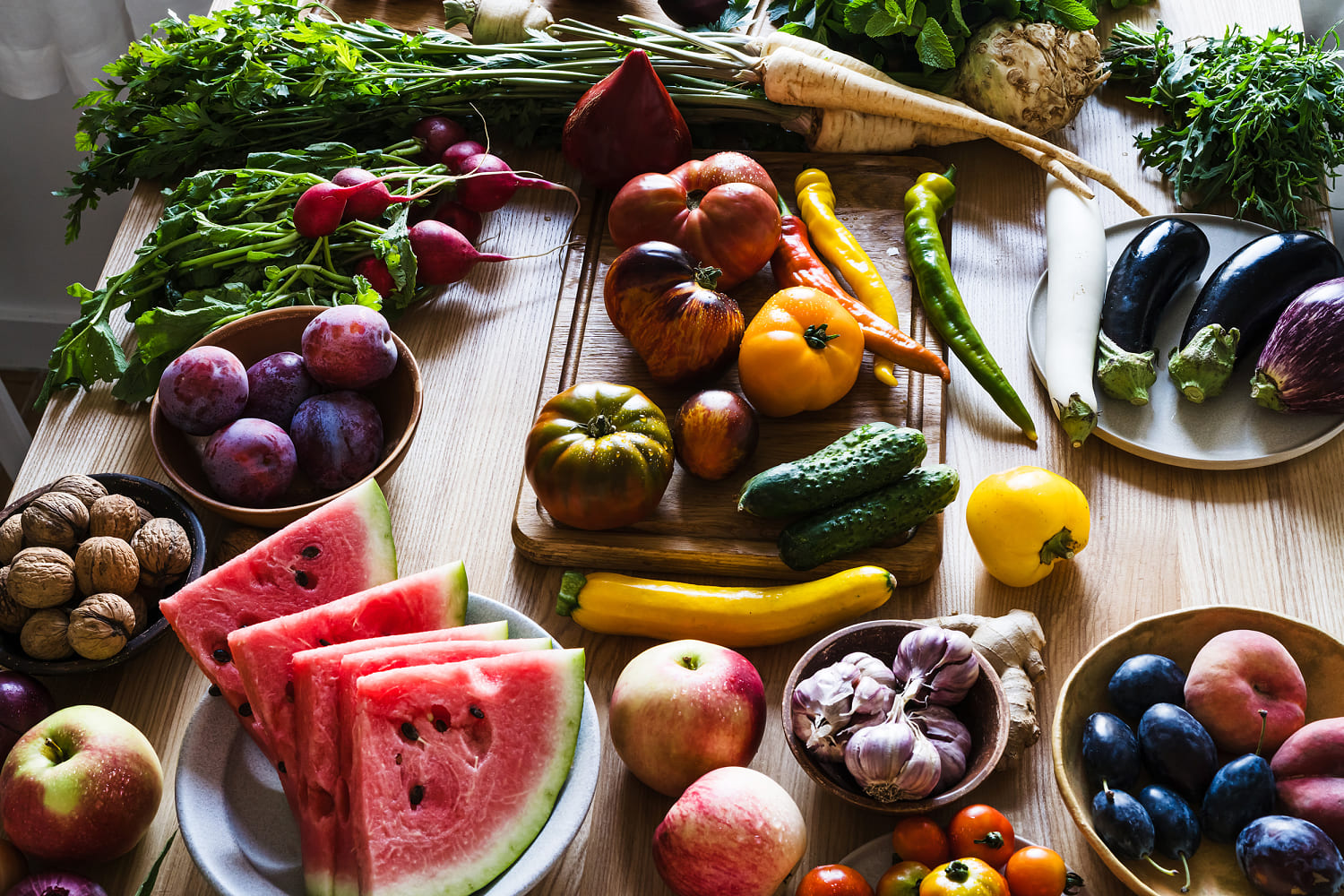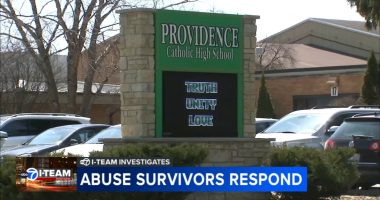Share this @internewscast.com

If doctors prescribed fruits and vegetables like medicine, could people improve their health through diet alone? That’s the theory behind a growing number of programs in the U.S. that deliver free produce.
These so-called produce prescription programs aim to combat heart problems and obesity-related diseases by either preparing free bundles of fruits and veggies for participants to pick up on a regular schedule, delivering fresh batches of produce to people’s homes or giving them money to buy produce.
Carol Grand, a 63-year-old retiree in Tulsa, Oklahoma, joined one such program in late 2022 after she was diagnosed with diabetes. Her doctor prescribed her medication, she said, but she didn’t want to rely on it forever.
“I said, ‘Well, this can’t possibly be the way I’m going to live my life,’” Grand said. “If there was another alternative, then I was there for it.”
Grand signed up for FreshRx Oklahoma, a nonprofit food prescription service for people with diabetes. The yearlong program distributes bags of locally grown fruits and vegetables, along with recipes, every two weeks. Participants also receive free health screenings every quarter.
Grand said her blood sugar dropped to nondiabetic levels and she lost 50 pounds.
Before the program, she said, she regularly ate junk food because it was more affordable: “My diet was horrible: anything quick, anything loaded with sugar.” Now, Grand said, she cooks recipes like sauteed tofu and sweet peppers.
Recent studies support the benefits of these programs. New research presented Wednesday at the American Heart Association’s scientific sessions in Chicago analyzed the impact of a program called Recipe4Health, which delivers 16 weekly batches of free produce to people’s doorsteps in Alameda County, California. Participants also attend group medical visits that teach them about nutrition and physical activity.
The researchers examined the effects on nearly 5,300 middle-aged patients at Federally Qualified Health Centers (clinics that serve low-income, uninsured or underinsured patients). The participants all had a chronic health condition or were food insecure.
Their health care providers sent an electronic “prescription” to Recipe4Health.
“The prescription, instead of going to the pharmacy, goes to the farm,” said Lisa Goldman Rosas, an assistant professor of epidemiology and population health at Stanford School of Medicine, who presented the research.
“The fact that it comes from your provider is very powerful,” she added. “It’s sending the message that food is part of your health because your provider cares about it.”
The researchers compared participants’ health records with those of patients at other Federally Qualified Health Centers who had not received the produce deliveries. Over the course of a year, participants significantly lowered their non-HDL cholesterol (the kind that clogs arteries) compared to the other group. Some participants also saw lower blood sugar levels.
Participants not only increased their produce consumption but also their physical activity, according to the research, which has not been peer-reviewed or published in a scientific journal. The share of participants who said they were food insecure (meaning they had limited access to healthy food due to a lack of money and other resources) dropped from 59% to 48%. However, being part of the program didn’t seem to change people’s blood pressure or body mass indexes.
A similar study last year analyzed the impact of nine produce programs run by Wholesome Wave, an organization that uses private funding to help communities facing poverty and nutrition insecurity. The programs collectively enrolled around 1,800 children who were overweight or had obesity, and around 2,000 adults with health risk factors such as obesity, diabetes and high blood pressure.
After participants met with a medical professional, they got between $15 and $300 per month — either as a paper voucher or loaded onto a card — to purchase produce at a local farmer’s market or grocery store.
The study found that the prescriptions improved the adults’ blood sugar control, blood pressure and body mass indexes.
“Our findings suggest these programs really could be an important and complementary part of clinical care moving forward,” said Kurt Hager, co-author of the analysis and a health sciences instructor at UMass Chan Medical School.
A study last year estimated that if 6.5 million adults with diabetes and food insecurity were given produce prescriptions for an average of 25 years, that would prevent nearly 300,000 incidents of cardiovascular disease and save close to $40 billion in health care costs.
Produce prescriptions gained new attention after the 2022 White House Conference on Hunger, Nutrition, and Health made it a priority to improve access to nutrition services for Medicare and Medicaid beneficiaries.
Historically, Hager said, such programs have been “unsustainable long term if they’re solely dependent on grants and foundation support and donations, so there’s a really big move right now to actually have health insurance begin paying for some of these programs.”
Hager added that more states have begun taking advantage of Medicaid waivers that allow them to pilot new health services. According to a February study, California, Massachusetts, New Jersey, North Carolina, Oregon and Washington have all approved waivers for Medicaid beneficiaries that allow for the direct provision of healthy food.
At the same time, researchers are gathering more evidence about the benefits of produce prescriptions. A 450-person trial in Southern California found that six months of weekly produce deliveries reduced blood sugar levels in people with Type 2 diabetes. And preliminary data from a trial in New York City found that families who received home deliveries of fresh produce were more food secure and less stressed overall compared to families who didn’t.
“We’re treating the food as basically a medication — but it takes on many other dimensions of making parents’ lives easier,” said Roopa Kalyanaraman Marcello, the director of that study.
The trial enrolled 250 families with children ages 2 to 8 who were either overweight or had obesity, then gave half the families locally grown fruits and vegetables for 24 weeks, plus tips about healthy eating and kid-friendly recipes. The other families got only the educational tips.
The deliveries didn’t necessarily lead families to eat more fruits and vegetables, since many simply bought less produce at the store, Marcello said, but they did prompt kids to eat a wider variety of foods.
“Early childhood is the most critical time period for shaping dietary patterns and preferences,” she said. “We wanted to intervene at the earliest point possible.”














